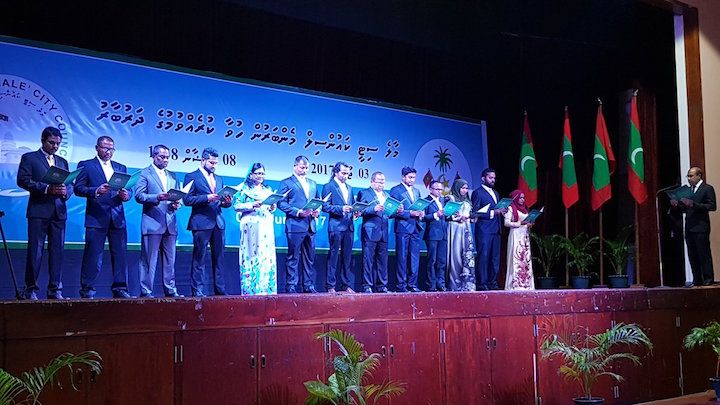New councillors take oath of office
Judges and magistrates administered oaths of office to 575 island councillors, 66 atoll councillors and 23 city councillors. The new councils also elected presidents and vice presidents at inaugural meetings after the swearing-in ceremonies.

04 Jun 2017, 09:00
Some 664 newly-elected island, atoll and city councillors were sworn into office across the country on Saturday.
Judges and magistrates administered oaths of office to 575 island councillors, 66 atoll councillors and 23 city councillors. The new councils also elected presidents and vice presidents at inaugural meetings after the swearing-in ceremonies.
Shifa Mohamed, a former education minister and two-term councillors, was elected as the first female mayor of Malé City and Shamau Shareef was elected deputy mayor.
Supreme Court Justice Adam Mohamed Abdulla administered the oath of office to the capital’s councillors at a ceremony at the Ghiyasudheen School in Malé.
Become a member
Get full access to our archive and personalise your experience.
Already a member?
Discussion
No comments yet. Be the first to share your thoughts!
No comments yet. Be the first to join the conversation!
Join the Conversation
Sign in to share your thoughts under an alias and take part in the discussion. Independent journalism thrives on open, respectful debate — your voice matters.




